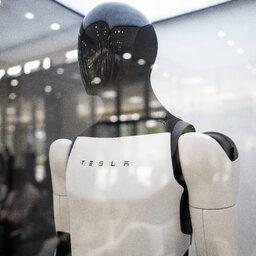KKR on 'Enormous' AI-Driven Data Center Demand
Artificial intelligence is fueling demand for data centers across Asia, with capacity set to double in the next four years, according to Moody’s. Projesh Banerjea, KKR director and Southeast Asia infrastructure lead, joins John Lee and Katia Dmitrieva on the Asia Centric podcast to discuss how investors can best tap into that growth – and how it can get complicated.
In 1 playlist(s)
Asia Centric by Bloomberg Intelligence
Some of the world's largest and fastest-growing markets, economies and companies are in Asia. Every …Social links
Follow podcast
Recent clips

Is the Global Defense Supercycle Sustainable?
27:23

Decoding the Multi-Billion Dollar Humanoid Market
20:04

Gen Z, Women and Rural India Drive Trading Boom
20:06
 Asia Centric by Bloomberg Intelligence
Asia Centric by Bloomberg Intelligence